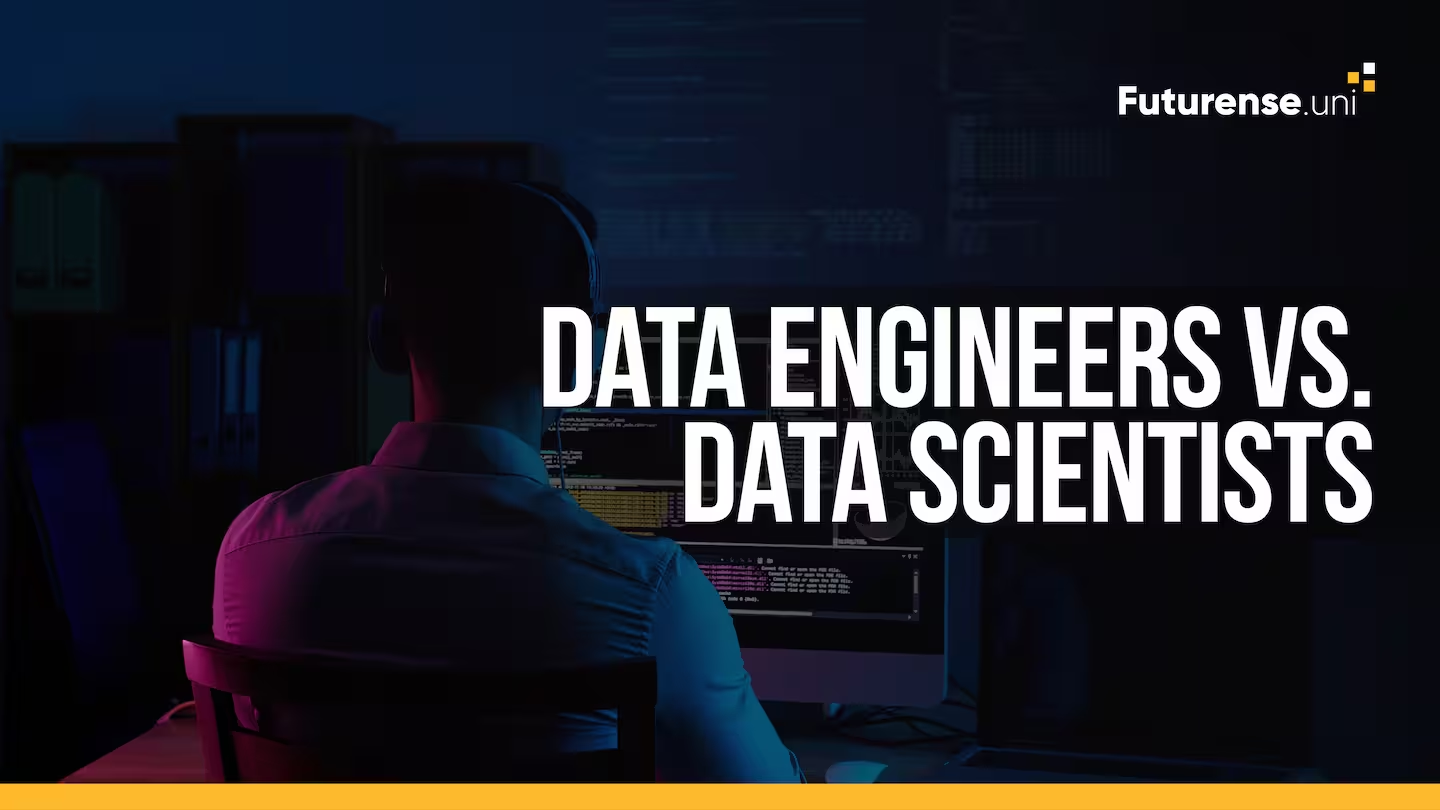What do TCS, Google, and every data-driven company have in common? They run on powerful data pipelines—built by engineers, not analysts or scientists. In 2026, employers aren’t just looking for “Python + SQL” skills; they want professionals who can design and deploy real-time pipelines on cloud platforms like Azure and GCP. This guide to the Best Data Engineering Courses cuts through the noise, showcasing 10 programs that go beyond tools to prepare you for high-impact roles in BFSI, SaaS, and analytics. Whether you’re a fresher, career switcher, or upskiller, these courses take you from tutorial mode to production-ready. Let’s dive in.
Know More: Data Engineers vs Data Sceintists
10 Best Data Engineering Courses to Check Out in May 2026
We’ve ranked the most relevant data engineering programs of 2026 based on what truly matters: deployment-readiness, cloud tool mastery, enterprise alignment, and long-term career payoff. From high-credibility university programs to hands-on project platforms, here are your top options.
1. PG Diploma & M.Tech in Data Engineering at IIT Jodhpur x Futurense
Best For: Ambitious learners seeking IIT-level credibility with enterprise-ready training
- Offered By: IIT Jodhpur in collaboration with Futurense
- Duration:
- PG Diploma: 12 months
- M.Tech: 24 months (with PGD-to-M.Tech lateral entry path)
- Format: Live online classes + weekend-friendly schedule
- Key Tools: PySpark, Kafka, Airflow, Azure, DBT, Snowflake
- Why It Stands Out:This is the only program in India combining an IIT credential with a deeply practical, tool-driven curriculum designed by Futurense, India’s leading AI skilling partner. It's not just theory or a coding bootcamp, it's a career-aligned, university-certified program that equips you to build real-world pipelines and prepare for deployment in BFSI, SaaS, and retail tech environments.Includes:
- Dedicated GitHub-ready projects
- Capstone mapped to hiring scenarios
- Dual credential pathway (PG Diploma + M.Tech)
- No GATE required
- Job Roles: Data Engineer, Big Data Developer, Cloud Platform Engineer, ETL Architect
- Price: Visit IIT Jodhpur PG Diploma & M.Tech in Data Engineering offered by Futurenese for fee structure & cohort details.
2. Google Cloud Data Engineering Certification (Coursera
Best For: Aspiring cloud-native engineers targeting GCP-based data roles.
Duration: 4–6 weeks (self-paced)
What You’ll Learn:
- BigQuery, Dataflow, Pub/Sub, Cloud Composer
- Designing scalable data lakes and stream processing pipelines
- Preparing for the GCP Professional Data Engineer exam
Why It Stands Out:
Offered directly by Google Cloud, this certification is widely recognized by recruiters at product companies and data-first startups. It focuses on practical cloud workflows over theory.
Outcome:
Ideal for landing roles like Cloud Data Engineer or GCP Data Analyst, especially where real-time data handling and scalability are critical.
3. Microsoft Azure Data Engineer Associate (DP-203)
Best For: Professionals targeting roles in large enterprises, IT services, or consulting firms using Azure.
Duration: Self-paced (6–10 weeks recommended)
What You’ll Learn:
- Azure Data Factory, Synapse Analytics, Data Lake Storage
- Implementing data solutions with pipelines, security, and monitoring
- End-to-end data engineering on Microsoft’s cloud ecosystem
Why It Stands Out:
DP-203 is one of the most in-demand certifications in India, especially with MNCs like TCS, Infosys, and Accenture. It aligns tightly with real-world Azure-based workflows.
Outcome:
Prepares you for roles like Azure Data Engineer, ETL Developer, or BI Platform Engineer, particularly in enterprise environments.
4. Data Engineering with Databricks (Databricks Academy)
Best For: Engineers working with big data or looking to specialize in Apache Spark and lakehouse architectures.
Duration: 3–5 weeks (self-paced)
What You’ll Learn:
- Apache Spark, Delta Lake, MLflow
- Building production-grade pipelines on the Databricks Lakehouse Platform
- Real-time data processing and data reliability techniques
Why It Stands Out:
Created by the inventors of Apache Spark, this course goes beyond basics, offering deep hands-on labs and architecture-level insights. It’s especially valued in analytics-heavy roles.
Outcome:
Equips you for roles like Data Engineer, Data Platform Engineer, or Spark Developer, especially in high-scale product or fintech teams.
5. The Data Engineer’s Toolbox (Udemy – 2025 Edition)
Best For: Beginners and budget-conscious learners who want a practical, no-fluff start.
Duration: ~25 hours of on-demand video
What You’ll Learn:
- Python, SQL, PostgreSQL, Pandas
- Apache Airflow basics for orchestration
- Docker for local development and deployment
Why It Stands Out:
This course is frequently updated and highly rated for its clarity and hands-on style. It’s a low-cost way to build a solid foundation without being overwhelmed.
Outcome:
Perfect for freshers, junior analysts, or self-taught learners looking to confidently transition into data engineering roles.
Explore More: Data Engineer Roadmap
6. Futurense’s Enterprise-Ready Data Engineering Program
Best For: Learners who want a job-aligned, hands-on program designed specifically for the Indian tech market.
Duration: 12–16 weeks (part-time, cohort-based)
What You’ll Learn:
- PySpark, Airflow, DBT, Kafka, CI/CD for data pipelines
- Azure-based deployment workflows
- Real-world problem statements mapped to enterprise use cases
Why It Stands Out:
This program is built to bridge the gap between online learning and actual deployment. Includes mentorship, mock interviews, resume building, and GitHub project audits, all focused on getting you hired.
Outcome:
Graduates are trained for immediate deployment into BFSI, SaaS, retail tech, and consulting projects as job-ready data engineers.
7. Udacity Data Engineering Nanodegree
Best For: Learners who prefer structured guidance with mentor support and portfolio-grade projects.
Duration: 4 months (10 hours/week recommended)
What You’ll Learn:
- PostgreSQL, Apache Airflow, AWS Redshift
- Building data models and data lakes
- Implementing scalable ETL pipelines and deploying them to the cloud
Why It Stands Out:
This nanodegree blends content, mentorship, and real-world projects with review-based feedback. It’s ideal for learners who want more than video tutorials and value structure and support.
Outcome:
Helps you create a strong GitHub portfolio and prepares you for roles in cloud-based and analytics-focused engineering teams.
8. MIT xPro: Data Engineering Bootcamp
Best For: Mid-career professionals or serious switchers looking for global credibility and deep practical knowledge.
Duration: 6 months (part-time, instructor-led)
What You’ll Learn:
- Python, ETL, data modeling, cloud architecture
- Building scalable pipelines across on-prem and cloud systems
- Industry case studies across fintech, healthcare, and logistics
Why It Stands Out:
Offered by MIT xPro, this bootcamp blends academic depth with industry application. It’s especially appealing to professionals aiming to transition into senior-level or global roles.
Outcome:
Graduates often land senior data engineer, architect, or hybrid data lead roles, with strong resumes backed by a globally recognized institution.
9. ProjectPro, Real World Data Engineering Projects
Best For: Self-learners and working professionals who want hands-on project experience without starting from scratch.
Duration: Ongoing (monthly subscription)
What You’ll Learn:
- 80+ curated projects using Kafka, Spark, Airflow, Snowflake
- Real-time streaming, batch pipelines, cloud deployments
- Guided walkthroughs with mentor support and source code access
Why It Stands Out:
Instead of static video tutorials, ProjectPro gives you end-to-end, deployable project templates you can use for interviews and GitHub. It’s ideal for interview prep and practical upskilling.
Outcome:
You’ll leave with a portfolio of real-world projects, exactly what hiring managers look for when assessing readiness.
10. Free Resources: YouTube + GitHub + DataTalks.Club
Best For: Self-starters who prefer learning independently with zero-cost, high-quality content.
Duration: Flexible (DIY learning path)
What You’ll Learn:
- Python, SQL, Airflow, DBT, Spark basics
- Real-world pipelines and streaming projects
- Community-curated content and open-source best practices
Top Channels & Platforms:
- DataTalks.Club: Free DE Zoomcamp (Airflow, GCP, Terraform)
- freeCodeCamp & CodeBasics: Complete Python & SQL walkthroughs
- GitHub: Sample pipelines and project templates
Why It Stands Out:
These free resources are surprisingly in-depth and widely used by aspiring engineers for practice and portfolio-building, especially before investing in paid programs.
Outcome:
Great for building foundational knowledge, creating personal projects, and deciding your next step before committing to certification.
Also Read: What is Data Engineering?
What Makes a Great Data Engineering Course in 2026?
With hundreds of “data engineering” courses floating around, the real question isn’t what’s available, but what’s worth your time.
The right course should do more than teach theory. It should make you deployment-ready for roles in fast-moving, data-intensive industries like fintech, healthcare, and
eCommerce.
Here’s what separates a high-impact course from a generic one in 2026:
1. Enterprise-Relevant Tools
Hiring managers aren’t looking for textbook learners, they’re looking for engineers who know:
- Apache Airflow for pipeline orchestration
- Apache Spark and Databricks for big data processing
- Azure Synapse and GCP BigQuery for cloud-native analytics
- DBT, Kafka, and Snowflake for scalable, production-grade workflows
A great course teaches you how to use these tools in real-world scenarios, not just demo projects.
2. Project-Driven Curriculum
You can’t build confidence by watching videos. You build it by shipping pipelines:
- Build an end-to-end batch + stream pipeline
- Design a real-time analytics dashboard for IoT data
- Create a cloud-based data lakehouse using open formats
Look for programs that offer capstone projects, case studies, or GitHub-ready deliverables.
3. Cloud Ecosystem Alignment
Most data engineering jobs in 2026 are cloud-first. A top course will align you with one (or more) of these:
- Azure (e.g., Microsoft DP-203 certification)
- Google Cloud (e.g., BigQuery, Dataflow, Cloud Composer)
- AWS (e.g., Glue, Redshift, Lambda for ETL pipelines)
Cloud certification + project work = an unbeatable combo for interviews.
4. Beginner to Deployment-Ready Path
The best programs meet you where you are:
- For beginners: Python, SQL, basic ETL
- For intermediate learners: Spark, orchestration, data modeling
- For advanced learners: Scalable architectures, CI/CD, cost optimization on clou
No fluff, just the essentials, with clear milestones.
5. Mentorship and Career Support
Especially in India’s crowded job market, personalized career help can be the difference between applying and getting hired.
Look for:
- 1:1 mentorship or code reviews
- Resume + GitHub profile building
- Mock interviews or referral networks
This is where enterprise-focused programs like Futurense often stand out, they’re not just upskilling you, they’re placing you.
How to Choose the Right Course Based on Your Career Stage
With so many great options, the smartest way to select a data engineering course is to match it to your current experience level and target role. Here’s how to decide what fits your situation best:
1. If You’re a College Student or Fresher (0–1 Years Experience)
Your Goal: Build strong fundamentals + get industry visibility
What to Look For:
- Beginner-friendly curriculum (SQL, Python, ETL basics)
- Projects you can push to GitHub
- Structured path to internships or entry-level roles
Recommended Courses:
- PG Diploma or M.Tech in Data Engineering at IIT Jodhpur x Futurense
- Udemy: The Data Engineer’s Toolbox
- Free YouTube/GitHub resources (e.g., DataTalks.Club)
Pro Tip: Focus on academic credentials + tool fluency. Use the IIT Jodhpur program to signal credibility while you master enterprise-grade tools.
2. If You’re an IT Professional or Analyst (1–4 Years Experience)
Your Goal: Transition into a dedicated Data Engineering role
What to Look For:
- Strong coverage of orchestration, Spark, and data warehousing
- Cloud alignment (Azure, GCP, AWS)
- Capstone project + resume-ready GitHub profile
Recommended Courses:
- Futurense Enterprise-Ready DE Program
- Google Cloud Data Engineering Certification
- Microsoft DP-203 (Azure Data Engineer Associate)
- Databricks Academy: Data Engineering Track
Pro Tip: Highlight project work in your resume and align your skills with job descriptions from Indian job portals (Naukri, LinkedIn).
3. If You’re Switching Careers from Software, QA, or Support
Your Goal: Land your first data-focused job without starting from scratch
What to Look For:
- Courses that offer mentorship, interview prep, and job support
- Practical skill-building in data pipeline tools (Airflow, DBT, Kafka)
- Certifications or diplomas that signal credibility
Recommended Courses:
- Futurense x IIT Jodhpur PGD or M.Tech
- ProjectPro (real-world project subscription)
- Udacity Nanodegree in Data Engineering
Pro Tip: Opt for courses with built-in placement support or structured GitHub feedback. They accelerate your visibility with recruiters.
4. If You’re a Senior Engineer, Architect, or Looking for Global Roles
Your Goal: Upskill for leadership or international roles
What to Look For:
- Brand-backed credentials (IIT, MIT, Microsoft, Google)
- Advanced design principles, cost optimization, security
- Exposure to real-time + hybrid architectures
Recommended Courses:
- MIT xPro: Data Engineering Bootcamp
- PG Diploma + M.Tech (Futurense + IIT Jodhpur)
- Databricks Academy Advanced Path
Pro Tip: These roles require you to show system-level thinking. Choose programs that touch on architectural decision-making, not just implementation.
Career Paths After Completing These Courses
Completing a high-quality data engineering course isn’t just about checking a box. It’s about qualifying for high-demand roles that require strong technical ownership, tool fluency, and problem-solving in production environments.
Here are the most relevant job paths you’ll be ready for after completing one or more of the courses listed above:
1. Data Engineer
This is the most direct and in-demand role. You’ll be responsible for building and maintaining data pipelines, ETL workflows, and infrastructure that supports analytics, AI, and business decision-making.
Skills Required: Python, SQL, Airflow, cloud platforms (Azure/GCP), Spark, DBT
Who’s Hiring: TCS, Amazon, Zomato, Razorpay, Accenture, Flipkart, and most modern tech firms
Avg. Salary (India): ₹9–16 LPA (entry to mid-level)
2. Big Data Developer
You’ll work on large-scale data processing tasks using distributed frameworks like Apache Hadoop or Spark, often focused on ingesting and transforming high-volume data in batch or real-time modes.
Skills Required: Hadoop, Hive, Spark, Kafka, Scala or Python
Ideal Course Pairings: PG Diploma (IIT Jodhpur), Databricks Academy, ProjectPro
Avg. Salary (India): ₹10–18 LPA
3. Cloud Data Engineer / Platform Engineer
Focuses on building scalable cloud-native pipelines on platforms like Azure, AWS, or GCP. Involves designing infrastructure for secure, cost-optimized data operations.
Skills Required: Azure Synapse, Data Factory, GCP BigQuery, Terraform, CI/CD
Ideal for: Professionals completing DP-203 or GCP certifications
Avg. Salary (India): ₹12–22 LPA
4. ETL Developer
Primarily responsible for extracting, transforming, and loading data from various sources to destinations, ensuring quality and consistency.
Skills Required: SQL, Informatica, Talend, Apache Nifi, Airflow
Best For: Freshers and switchers from traditional IT roles
Avg. Salary (India): ₹6–12 LPA
5. Analytics Engineer
A newer role that blends software engineering with BI. You’ll build reusable data models and help analysts and data scientists consume high-quality, curated data.
Skills Required: DBT, SQL, Airflow, Git, BI tools like Tableau or PowerBI
Where to Learn: Futurense, DBT-focused YouTube/ProjectPro paths
Avg. Salary (India): ₹10–18 LPA
6. Real-Time Data Pipeline Engineer
Specialized in designing event-driven architectures and real-time processing pipelines for use cases like fraud detection or ad targeting.
Skills Required: Kafka, Flink, Spark Streaming, Redis, schema registry tools
Best Training Sources: ProjectPro, Databricks, Futurense’s enterprise program
Avg. Salary (India): ₹12–20 LPA
Whether you’re applying to high-growth startups or stable enterprise giants, completing one of the recommended programs can give you both credibility and confidence to own these roles.
Conclusion
Best Data Engineering Courses are no longer just for specialists—data engineering has become the backbone of every AI, analytics, and cloud transformation strategy in 2026. Whether you’re breaking into your first data role or advancing to a cloud-native engineering position, the programs we’ve reviewed deliver clear, job-aligned outcomes. From the academic rigor of IIT Jodhpur’s PGD & M.Tech with Futurense to hands-on platforms like ProjectPro and Databricks, the right choice depends on your career goals—not industry hype.
Choose based on relevance, not reputation.
Learn with the intent to deploy, not just to certify.
tl;dr – Quick Summary
- Top Pick: PG Diploma and M.Tech in Data Engineering by IIT Jodhpur x Futurense: academic credibility + enterprise toolstack.
- Choose cloud-aligned paths like Azure DP-203 or GCP Coursera track for recruiter visibility.
- Learn real tools: PySpark, Airflow, Kafka, DBT, Azure, Snowflake.
- Get job-ready faster with project-based platforms like ProjectPro or Futurense’s Enterprise DE Program.
- Ideal roles after these courses include: Data Engineer, Big Data Developer, Cloud Engineer, ETL Developer, Analytics Engineer.
- Tailor your course to your career stage: fresher, switcher, or senior pro.
- For free learners: YouTube + GitHub + DataTalksClub can help kickstart the journey.
FAQ: Best Data Engineering Courses
What do data engineering courses typically cover?
They usually include topics like data pipelines (ETL/ELT), big data frameworks (Spark, Hadoop), data warehousing, SQL & NoSQL, cloud platforms (AWS, GCP, Azure), data modeling, data lakes, orchestration tools (Airflow, Kafka), and data governance.
Do I need programming experience to take data engineering courses?
Yes. Basic knowledge of Python or Java/Scala, SQL, and understanding of data structures helps a lot. Many courses assume you can code and handle data manipulation.
How do you choose a data engineering course?
Look for curriculum relevance, instructor quality, project support, industry partnerships, alumni outcomes, access to cloud credits, and course reviews.
How long do data engineering courses take?
They vary: short courses / certificates may last 3–6 months; comprehensive bootcamps may take 6–12 months.
What career roles can I aim for after completing a data engineering course?
Roles include Data Engineer, Big Data Engineer, ETL Developer, Data Pipeline Engineer, Analytics Engineer, or Cloud Data Engineer.








.avif)
